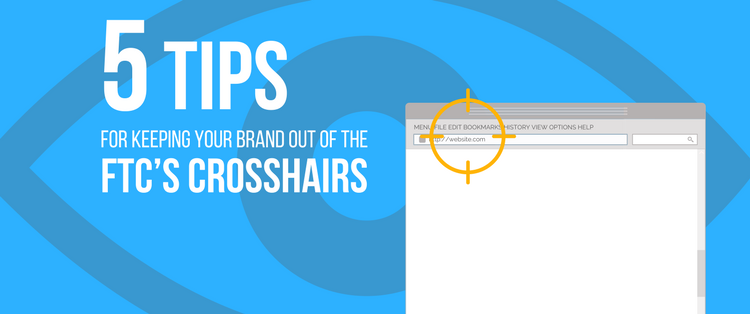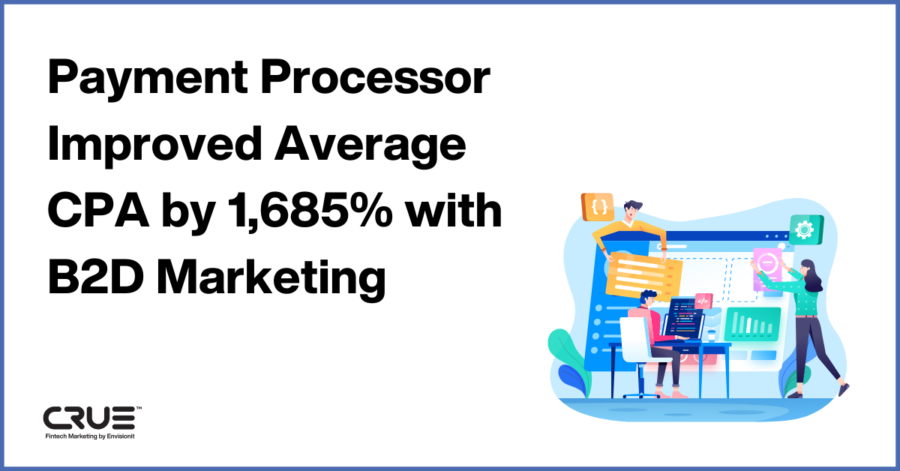Influencer marketing is one of the fastest growing channels in advertising. Just look at the headlines.
- 88 Percent of Consumers Trust Online Recommendations As Much as Personal Ones
- The Importance Of Influencer Marketing For B2B Marketers
- 5 Reasons Influencer Marketing is the Most Effective Form of Marketing
- How ‘Influencer Marketing’ Can Help Your Business Reach a Wider Audience Online
You get it, right? Influencer marketing is more than just the latest online marketing fashion statement. Companies of all sizes are employing influencer tactics to drive product awareness, purchase and loyalty. After all, when it comes to product inspiration and trust, 74% of consumers turn to social media to make purchasing decisions and 77% tend to trust other consumers over branded messaging.
So what’s not to like? Influencer marketing appears to be a win-win for marketers. Or is it?
Now look at these headlines.
- Instagram influencers warned by the FTC
- FTC Finalizes Settlement With Warner Bros. Over Secret Influencer Marketing
- FTC Slams Lord & Taylor for Not Disclosing Paid Social Posts and Native Ads
- Fyre Festival “influencers” sued for social media promotion
These headlines aren’t meant to frighten you away, they’re meant to inform you of the importance of knowing the rules of the game. Influencer marketing can be hugely successful and drive the right headlines for your company as long as you understand how to avoid the wrong headlines.
The FTC Act states that “an act or practice is deceptive if there is a material misrepresentation or omission of information that is likely to mislead consumers acting reasonably in the circumstances.”
Below are 5 simple tips to keeping your brand out of the FTC’sblock crosshairs.
1. Transparent Communications
- Ensure your influencers use their true identity and conspicuously identify their affiliation with your company.
- Your target audience should know the true identity of the influencer and the existence of any “material connection” between the influencer and your brand/company
- A material connection can include any benefits or incentives such as monetary payment, free product, exclusive or early access, discounts, gifts (including travel), or an employer/employee or other business relationship
2. Proper Disclosure
- The influencer/brand connection should be clear and conspicuous and should accompany or be part of every post that requires disclosure, no matter the social media channel used to communicate to your target audience
- Using a prominent hashtag that is understood by potential audiences to mean that a material connection exists between the influencer and the brand, for example hashtags such as “#Ad” and “#Sponsored”
- Note that the FTC has cautioned against the use of abbreviated hashtags or other hashtags that may not have a clear meaning to the audience (such as “#Spon”), even in platforms with character or space limitations
3. Truth and Substantiation
- Any seemingly objective statements influencers make must be truthful and not misleading. Have substantiation to support such statements in your files at the time the statement is made
- Substantiation means you should give the audience you plan to engage with accurate information about your products or services
- Influencer postings should reflect their honest opinions, beliefs, and experiences. The brand should not instruct them to write only positive things about products and services
4. Disclose Material Terms
- When making comparative claims or promoting products that have limitations on availability, supplies, restrictions or eligibility, be sure to give audiences all the material information they need to properly evaluate
- Include a clear and conspicuous disclaimer/disclosure that would put your audience on notice that there is additional information they should know and inform them where they can get that information
- This disclaimer/disclosure should be viewable on whatever platforms/devices those audiences might be using (e.g., mobile), and when placing the qualifying language on a separate page, ensure that the link is labelled in a way that clearly discloses the importance, nature, and relevance of the information on that page
5. Your Responsibility as a Brand
- Companies and brands have a responsibility to ensure that their relationships to employees, business partners, and influencers are adequately disclosed and that statements made by these engaged parties about the company’s products or services or those of their competitors are truthful and accurate.
- Institute company-wide social media policies designed to ensure compliance with these principles
- Make sure that any agencies or other vendors retained for social media activities have a social media policy that is in alignment with yours
- Reasonably monitor all campaigns for compliance with policies regarding disclosure of material connections and truthfulness of claims
- Lastly, visit the FTC’s website for the latest rules on proper disclosure
In the words of Sergeant Phil Esterhaus, “Let’s be safe out there.”
Source: The WOMMA Guide to Influencer Marketing













